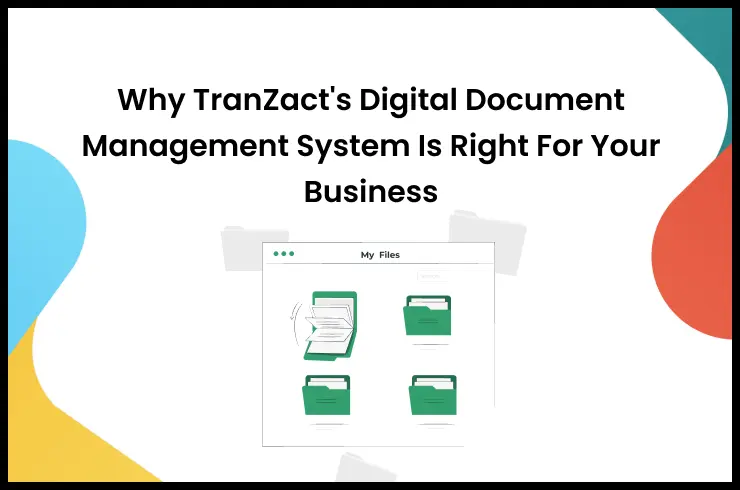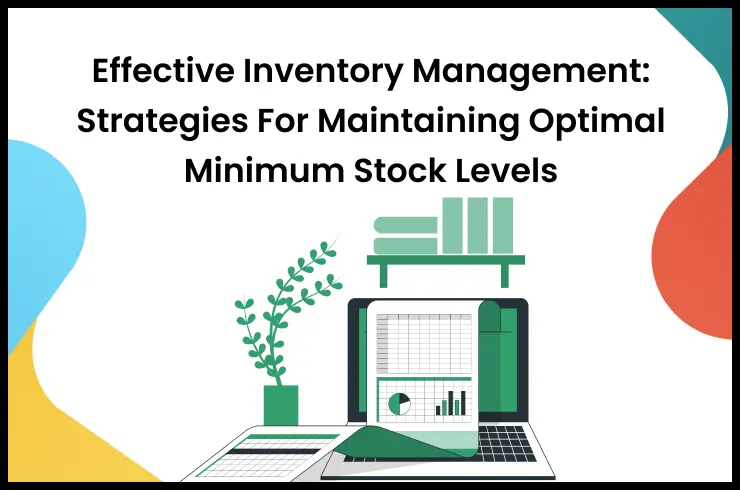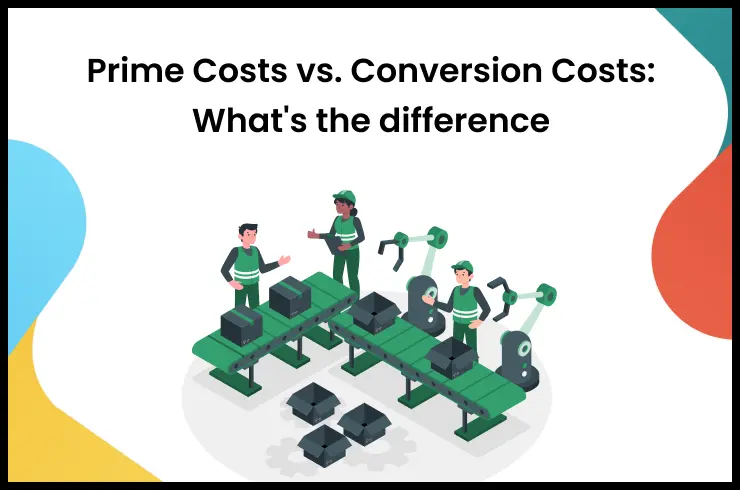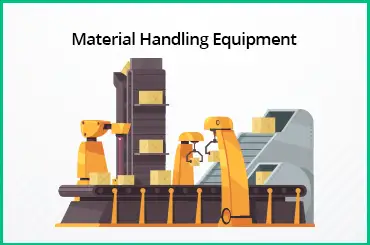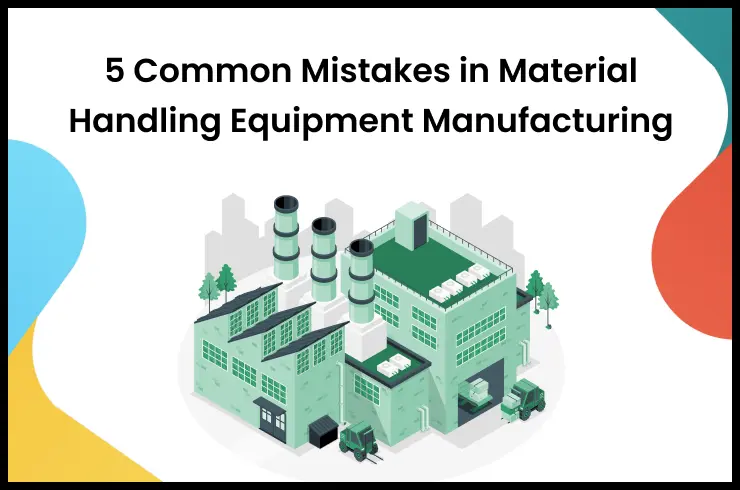Discrete manufacturing is a type of production process wherein countable individual products are manufactured in cases where parts assembling is involved. The discrete manufacturing process is a viable option in terms of meeting the market's demands, ensuring maximum production efficiency, and providing quality products.
If you are into manufacturing automotive parts, electronic goods, or any other product that involves discrete manufacturing, it is important to understand this manufacturing process.
In this article, we have explained the features and applications of discrete manufacturing, the advantages, and disadvantages of discrete manufacturing, technologies used in discrete manufacturing, and its future.
What Is Discrete Manufacturing?
In discrete manufacturing, the production line consists of many workstations and each workstation produces various parts or items that are assembled to create the final product.
To explain further, discrete manufacturing produces different items like furniture, electronics, cars, and others. It includes products that can be seen, touched, and are ready to be sold.
Discrete manufacturing involves the production of exclusive products like toys, household appliances, smartphones, and automobiles.
Some industries where discrete manufacturing is used are automobiles, toys, furniture, electronics, machines, and even clothing.
Difference Between Discrete and Process Manufacturing
| Discrete Manufacturing | Process Manufacturing |
|---|---|
| This includes products that are easy to assemble and disassemble. For example, cars, furniture, and airplanes. | It involves the manufacturing of products that are not easy to assemble or re-assemble. For example, paper, medicine, and others. |
| In discrete manufacturing, production is done in a sequence of steps or a route. For example, an assembly line. | Process manufacturing uses a fixed formula or recipe, and the ingredients are processed in batches. |
| Discrete manufacturing makes products that can be identified as individual units like smartphones. | In process manufacturing, there are no distinct units like salt or oil. |
| The focus is to ensure that each product meets the specific standard. | Here the focus is on maintaining consistency and quality throughout the production process. |
Characteristics of Discrete Manufacturing
Let's find out the key characteristics of discrete manufacturing:
Production Planning and Scheduling:
Discrete manufacturing requires careful planning and scheduling to ensure that the necessary parts and components are available when needed. Production schedules need to be optimized to minimize waste and maximize efficiency.
Types of Products Manufactured:
The discrete manufacturing sectors comprise automobiles, airplanes, household equipment, computers, machinery, and their respective components used in assembly.
Batch Sizes and Lead Times:
The batch size highlights the volume of production, and the lead times refer to the time taken for the entire process. Both these parameters impact the efficiency of production and hence must be optimized for better output.
Production Planning and Scheduling:
It involves the planning of the entire production process. It helps define the purpose of production and how to achieve same. The scheduling defines how much time each production stage takes and how much each person should work to ensure that the production is completed on time.
Applications of Discrete Manufacturing
Advanced manufacturing technology such as discrete manufacturing is used in many industries. Have a look.
Automotive Manufacturing:
It is used in the automotive industry. It involves the production of vehicles, engines, and transmission suspension systems.
Consumer Electronics Manufacturing:
This involves manufacturing consumer goods like tablets, laptops, smartphones, and others. These are made separately and are assembled to create the final products.
Furniture Manufacturing:
Discrete manufacturing also finds application in the furniture industry. For example, manufacturing furniture, chairs, tables, and cabinets.
Aerospace Manufacturing:
The aerospace industry also focuses on discrete manufacturing. It involves the manufacturing of engines, wings, and fuselages.
Medical Device Industry:
This sector deals with the production of medical equipment and tools like implants, medical devices, lab equipment, and others with a discrete manufacturing approach.
Advantages of Discrete Manufacturing
The important advantages of discrete manufacturing are outlined below:
Flexibility in Production:
Discrete manufacturing gives businesses the flexibility to switch between production lines when needed. So, it enables the manufacturers to amend operations as per the market trends and demand.
Reduced Waste and Inventory:
In this type of manufacturing, there is better control over production, it ensures that there is lesser wastage of resources.
Improved Quality Control:
It gives better control over production processes through proper monitoring and enhanced traceability. This ensures better quality control, and it also improves the efficiency of the manufacturing process.
Increased Customer Satisfaction:
Every company is looking for maximum customer satisfaction. It is an easy way to capture the market and gain brand loyalty. With discrete manufacturing, the company has better control over the quality and can deliver the product on time. This increases the overall trust in the brand, eventually enhancing customer satisfaction.
More advantages of discrete manufacturing are low production costs, low inventory costs, facility of customization, and a significantly faster time to market.
Disadvantages of Discrete Manufacturing
There are certain downsides too when it comes to this type of manufacturing. Let's see.
High Setup Costs: The immense complexities of setting up the entire unit add to the cost. This includes the cost of machines, training costs, and more.
Longer Lead Times: Production batch size also impacts the work-in-process inventory levels and lead time. Discrete manufacturing involves several steps, and each step is interlinked. Hence, the production of smaller batch sizes will involve each of these resources, thereby leading to higher lead time.
Limited Scalability: Since the discrete manufacturing process is designed to produce only a specific product or type of product, there is limited flexibility to make any changes.
Higher Labor Costs: Since this process of manufacturing focuses on specialized production labor, resources need to be trained from time to time to ensure they are trained as per the changes. So, this manufacturing process requires skilled, qualified labor, which again increases the labor cost.
Technologies Used in Discrete Manufacturing
There has been a significant development in the application of technology in the manufacturing domain. Some of the key technologies that robustly redefine the discrete manufacturing process are:
Computer-Aided Design (CAD)
Engineers use CAD software for designing a product, conceptualizing the ideas to consider finer details that ensure the end product is flawless. This tool performs rapid design calculations and simulations, helping create accurate and precise product designs.
Computer-Aided Manufacturing (CAM)
The computer-aided manufacturing helps manufacturing companies to automate the management process, keeping track of the production process, resources, and transportation.
Enterprise Resource Planning (ERP)
ERP implementation gives better control and visibility over the inventory and the entire production process for every step of their processes. With the help of ERP, the platforms check different types of data and information and make it accessible and available at all points.
With an integrated platform, companies can reduce redundancy and cut down on any errors while promoting productivity and efficiency. TranZact is one such software providing end-to-end ERP solutions.
Product Lifecycle Management (PLM)
Product life-cycle management ensures management of the entire life-cycle of the products from the time of conceptualization until the product is finally ready to be dispatched. Robotics and Automation
Technology intervention across the different industrial domains is evident. Industrial robots try and have a widespread application in manufacturing companies. These robots can easily take up tasks like welding, packaging, and assembly line work. Moreover, these robots and automation work ensure the seamless and continuous flow of work that eventually enhances work productivity.
Future of Discrete Manufacturing
The future of discrete manufacturing is promising because of the growing demand for products and the need for innovation. With the intervention and combination of advanced technology, manufacturing companies can meet the growing demands. With advanced technologies like the Internet of Things, CAD/CAM, Blockchain, Robotics, and automation, manufacturing companies have immense potential to expand and grow.
One major hurdle that the discrete manufacturer will need to overcome is to connect old technology with the new. This will ensure that the company is working in alignment with the industry trends and requirements and fulfills the growing demand of the customer.
TranZact's cloud-based ERP solution can help streamline your manufacturing processes from start to finish and scale your business consistently. On TranZact, you can manage quotations, sales, purchases, production, and inventory seamlessly!
FAQs on Discrete Manufacturing
1. What is discrete manufacturing?
Discrete manufacturing is an approach that focuses on creating distinct items which are countable, and then assembling them to create a final product. Some examples include toys, furniture, and consumer electronic goods.
2. What are the advantages of discrete manufacturing?
There are several advantages of discrete manufacturing. It offers better control of quality, higher productivity, and better inventory management. Thus, enhancing the future of manufacturing and helping companies meet consumer demand and enhance customer satisfaction.
3. What are some examples of industries that use discrete manufacturing?
Some of the industries where discrete manufacturing is used are automotive, aerospace, electronics goods, and consumer goods.







